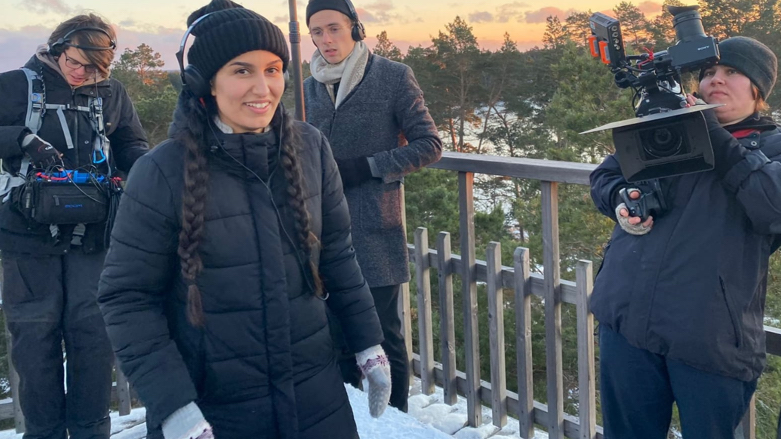New Kurdish feature film to focus on the mental health of Peshmerga veterans

ERBIL (Kurdistan 24) – Armenian-Kurdish filmmaker Solin Bakircian, 25, is making a crowd-funded film about the mental health of Peshmerga who fought against the Saddam Hussein regime during the 1970s and 1980s.
During the film, Peshmerga who fought in the mountains will talk about their war trauma in group therapy. The film aims to raise awareness of mental health among older refugees and how Sweden has failed to provide refugees with psychiatric help. Bakircian’s father will also participate in the group therapy in the film.
"Doing this feature film is something I've always wanted to do. Seeing my father, a former Peshmerga against Saddam, suffer from his trauma in silence has made me always wonder how to start a conversation amongst Kurds about the taboo of mental health," Bakircian told Kurdistan 24.
"Many of the Peshmerga (and victims from Kurdish wars), now and then, often have issues talking about what they've been through, even with their loved ones," she said.
She noted that there is often a focus in the West on mental health awareness, but not for refugees who fled war zones.
"We never talk about offering therapy with psychologists speaking their native language to refugees that fled wars," she said. "So, even though Westerners have a lot of mental health awareness, it almost never covers this specific, very important, aspect that I think would help many to deal with their traumas early from when it happened."
Discussing mental health is taboo in Kurdish culture.
"We're raised, as in many other cultures as well, not to say how we really, truly, feel about things," Bakircian said. "This is particularly most common amongst the older generation of men, who have seen war."
She said it's very uncommon for Kurdish war survivors to talk about their trauma. She hopes Kurdish families will watch the movie and realize there is no shame in discussing trauma, mental health, or even crying and showing emotions over the past.
"Rather, it's a sign of incredible strength and bravery to be breaking that norm," she said.
Bakircian was born and raised in Sweden. For the film, she also received many donations from people in Sweden.
"We ended up in an urgent situation where we only had a month before the group therapy, and so we started our Kickstarter," she said. "A lot of people donated, and we are so very, very grateful for that!"
Bakircian started her work as a filmmaker in 2017 when she moved to England and started to work in a student-driven TV station.
"There, I learned the basic skills that I took with me to film schools in Sweden," she said. "During this whole time, I've been working as a (film) crew on different film productions (both fiction and documentary projects)."
In 2019, Bakircian released two projects of her own. One was a music video called 'The Best Days' and the other a short film called 'Bavo, bavê mino' ('Father, my father').
"In 2020, I was accepted to the bachelor's program in Directing at Stockholm University of the Arts, so now I'm a full-time student and full-time worker at my own film company," she said.
"A dream of mine is to one day teach film or start a film and art school in Kurdistan."
